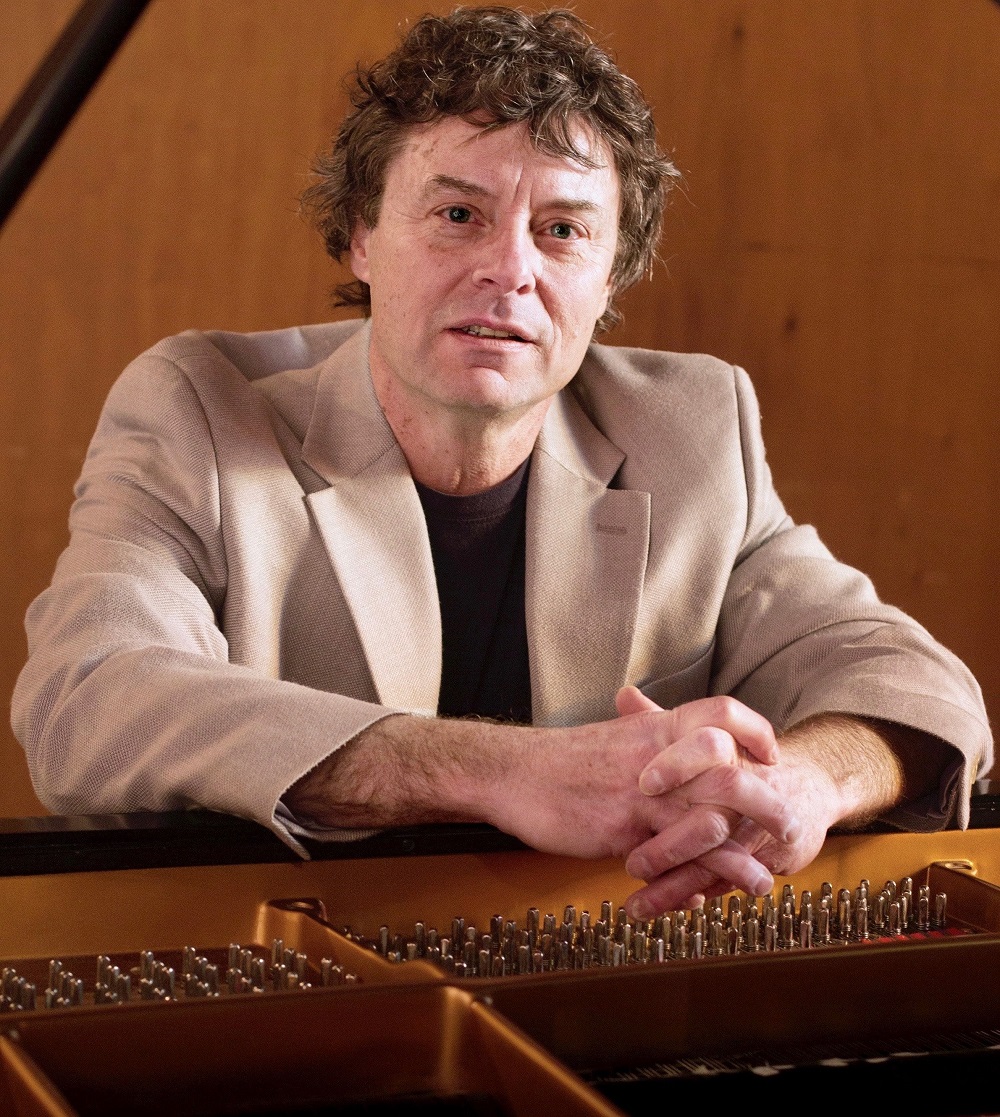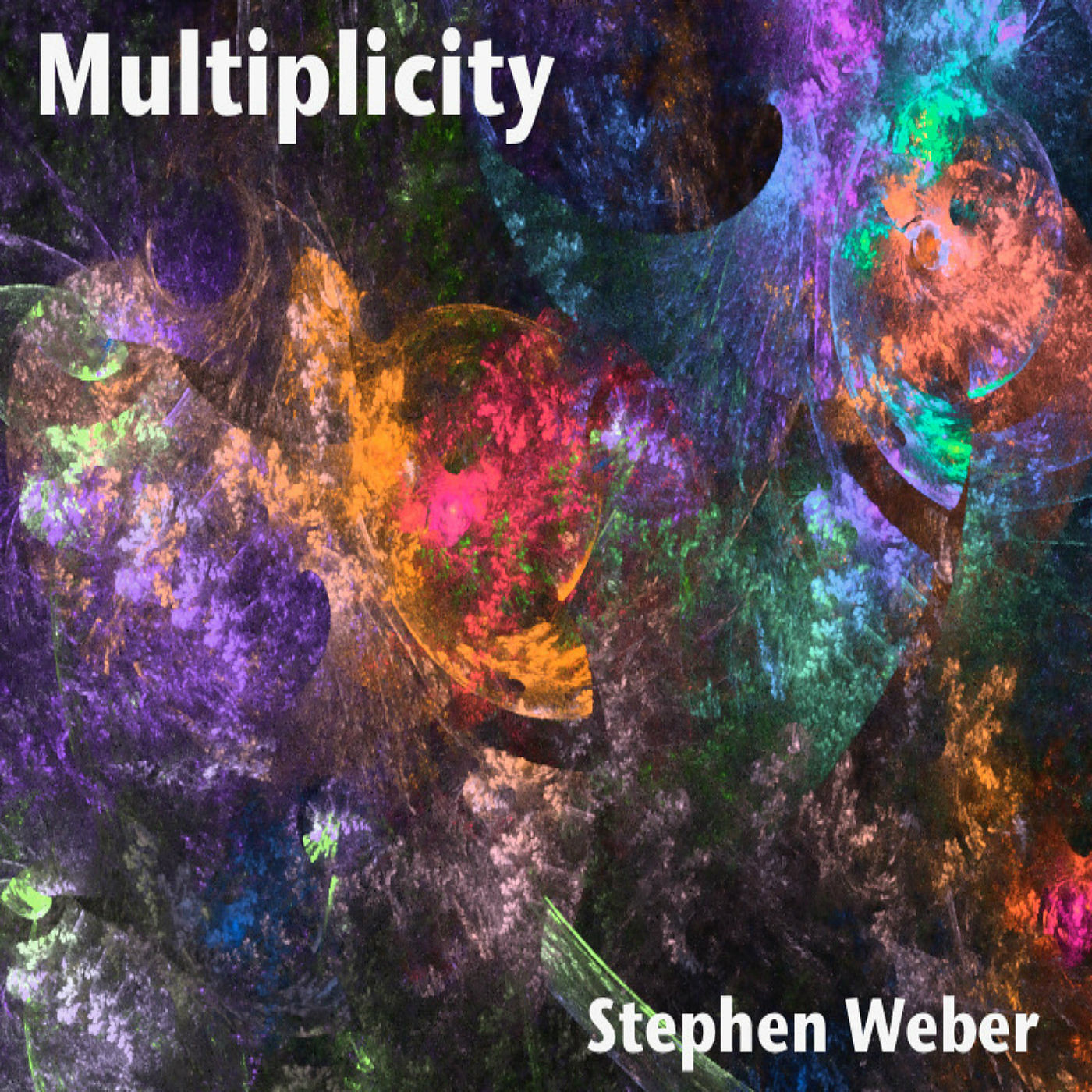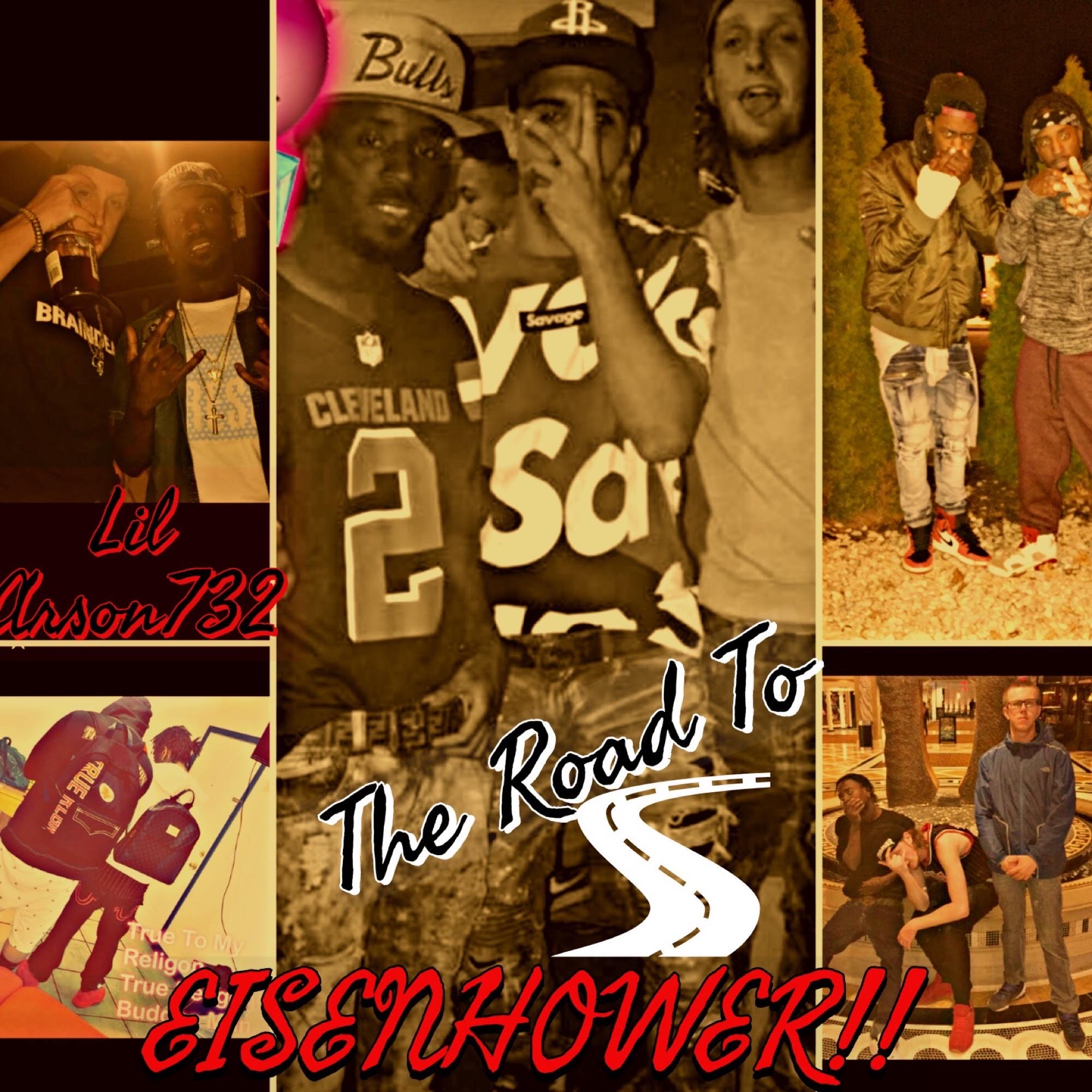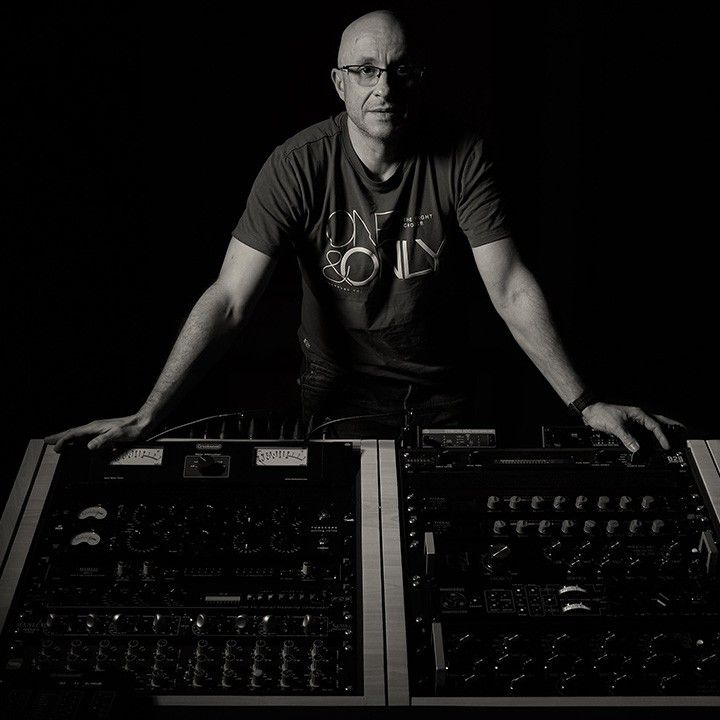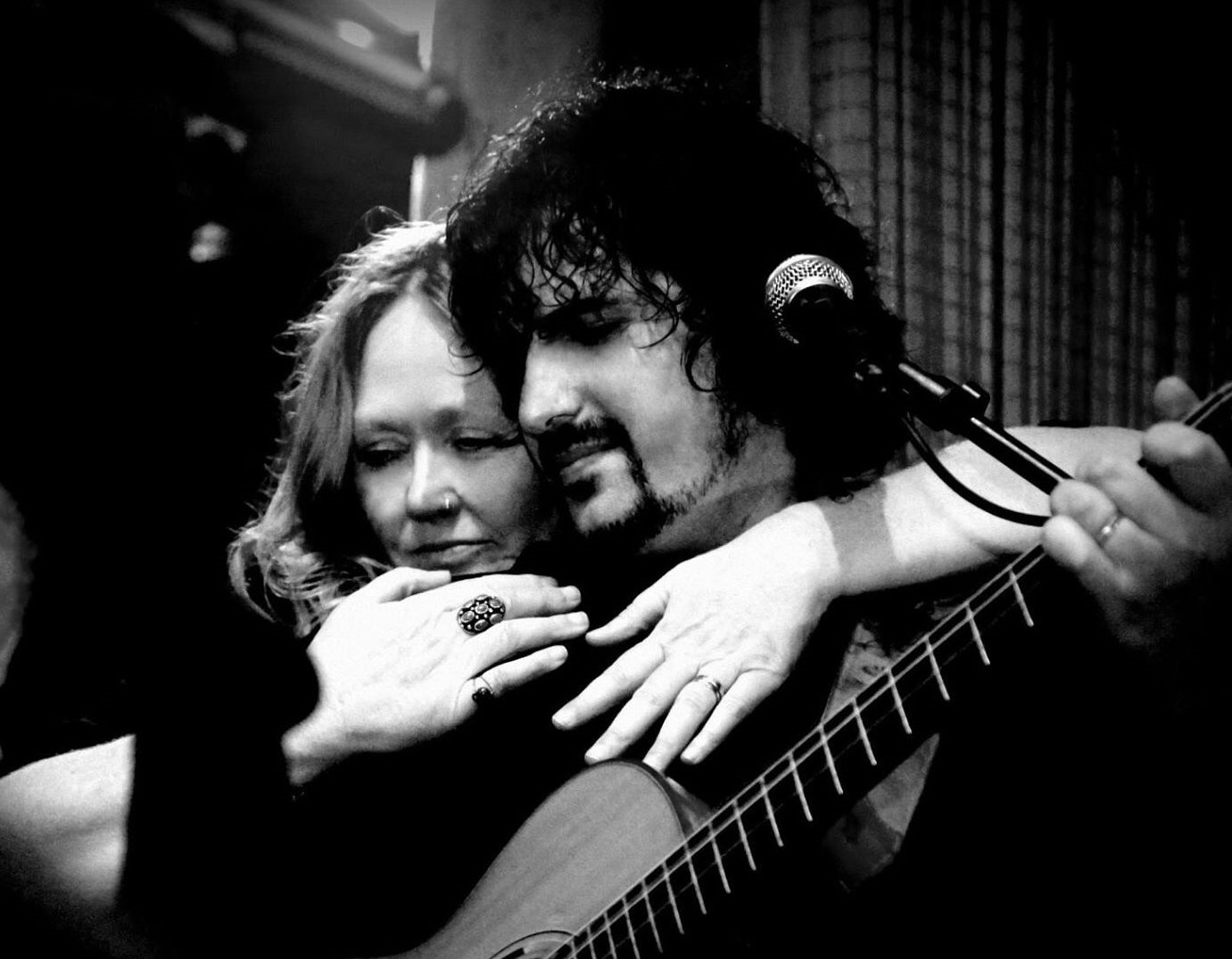Interview – Steve Weber and his quest for beauty through music
Remarkably educated in music and with an immense catalog of works, Prof. Steve Weber has managed to unite two worlds in his approach – the craftsmanship and perfectionism of the old masters and the impulse-driven workflow of the 21st century music creation. And if his academic growth might be attributed to discipline and persistence, coping with hearing problems and physical conditions to be able to still write and perform music is nothing else but passion. Another great Drooble dweller we can all learn a ton from. Let’s dive into his world!
Hello! Tell the world about yourself. How did you grow up to become the musician you are today?
I’m Steve Weber, a professor of music and interdisciplinary studies, but part of my job is administrative as Chair of a Division of Arts and Humanities at a public liberal arts institution. I grew up in a musical family; everyone in our family played instruments and sang. My three degrees are in music education, piano performance, and Fine Arts (with specializations in composition and piano pedagogy). All of that sounds impressive, but it’s basically a lot of hard work, dedication to my crafts, and an ongoing thirst for knowledge and personal growth.
Introduce your current musical projects and tell us what makes each one special for you!
I just finished a commission for a publisher, the fourth one for that particular publisher. I’ve begun work on a piano concert I hope to give this fall, built around the concept of “beauty”. Currently, I’m in the “dabbling” stage for another album of humbly-crafted, marginally engaging, eclectic, and sometimes ethereal or esoteric musical musings. It’s been a couple years since I’ve performed abroad, so I’m also starting to look into places where I might perform; I’m thinking Scandinavia this time.
You have been playing music for a long while! How do you find the drive and inspiration to keep going all this time?
Yes, I began playing at age seven. So many musicians have this intrinsic kinship to their art. We can’t not do it. We’re immersed in a quest to learn more, improve on what we know, and reap the benefits from our engagement with our craft. Since I teach at a university, I’m also inspired by my students; though I challenge them every day, they continually challenge me as well to be a better teacher and performer.
How is your local music scene in your perspective? Do you feel like you belong there?
I’m in a town of 15,000, but within 45 minutes of a lot of culture and a fairly vibrant music scene. Admittedly, I don’t attend many concerts or performances outside those I have to attend at the university, usually 30-40 a year. I don’t believe this is an ideal location for me, though I have built a substantial local and regional audience when I perform in the area. Quite frankly, I don’t know where I belong.
What is your all-time favorite record and how did it change you as an artist?
Tough question. Though I can’t narrow it down to a single record, I can relate what influenced and inspired me as performer and composer. I listened to ALL kinds of styles and genres growing up and quickly learned that I was drawn to composers and artists who essentially did their own thing and strove for great craftsmanship. I’m talking about Yes, Emerson, Lake and Palmer, early Queen, Pink Floyd, Sigur Rós, and art music masters like Beethoven, Chopin, Bartok, and Bach, all of which were radicals in their own right. These creators and performers inspired me to be myself as a musician/performer and to strive for creating or presenting the highest quality product.
What are your favorite software and hardware tools for music production?
I’ve got a modest setup. I use Logix X and a myriad of add-ons with a Kurzweil console keyboard.
What is your songwriting process like?
I have two distinct processes. The bulk of my production, over 300 compositions, is “art” music, many of which are published by various publishing houses. For this process, I formulate ideas: structure, key, harmonic vocabulary, melodic or rhythmic ideas, etc. Creative ideas then swim around in my head until they eventually spill onto the staff paper. After everything is fully notated, I go to a keyboard to check things. Changes are usually minimal. The sky is the limit with this type of composition, as I don’t rely on “what it sounds like’ for feedback; I essentially rely on an understanding of theory and utilization of compositional techniques.
The second process is the stuff I do for fun at my DAW. This is generally quite spontaneous. I don’t have any preconceptions about what I’m going to create; it’s based on my mood at the time, whatever sounds or textures I find that inspires me, or exploration of something I haven’t tried before. Whatever I produce is just for fun and to satisfy my curiosity for the creative process, but everyone once in a while I’ll end up with something others find intriguing.
Out of all the live shows you played, which one was the most memorable, and why?
Most of the shows I play aren’t really shows. I do a lot of banquets, civic events, luncheons, conferences, or concerts on campus or in other venues. Two memorable ones come to mind. In 1994, a polytonal ragtime piece I composed was selected as the winning composition in the World Piano Pedagogy Conference Composition Competition. They flew me to Chicago to perform the piece in front of 2000 piano teachers and performers. It was harrowing. They had several cameras and mics around the concert grand on stage projecting images from all angles to massive TV screens in the venue. The second was an organ concert I did on a massive pipe organ at an historic cathedral in central Budapest. Though it was only attended by 300 people or so, I was introduced to the “Father of Hungarian Church Music”, a gentleman in his 90s, who told me through an interpreter that “he’d never heard those kinds of sounds come out of that organ”. I’m not sure it was a compliment, but I took it as such and was thrilled to meet him and have pictures taken with him.
What is your biggest musical goal?
I want to continue to grow, learn, and fully develop whatever talent I have. I’ve faced – and continue to face – challenges in this regard. I’ve had tinnitus (ringing in the ears) non-stop since age nine, and along with that came substantial hearing loss, so I continue to make do with what I have. In 2016, I ended up having six surgeries on my playing apparatus. I continue to try to rehab and walk a fine line between what I can do and what might cause more damage. I want to propagate the celebration of music as the universal language and its capability for healing, social change, therapy, and generally changing lives for the better. We’re so fortunate that we speak this language and have the power we do. Lately, my main focus is to bring beauty into the world. This is tied to my academic interest and research in aesthetics, beauty, and the sublime. It’s become a mission; though beauty is subjective, I truly want to create it in various guises and share it with anyone who will listen.
How has being on Drooble helped you as a musician?
Where to start? For me, it’s a haven where I can network with people who simply love to make music. It’s an opportunity to connect with people all over the world, not having to rely on my very poor in-person social skills. The community has been tremendously accepting, appreciative, supportive, and encouraging. My music is not really for the masses and is quite often off-the-beaten-path, but due to the diverse nature of music on Drooble and its membership, there are plenty out there willing to listen to and provide feedback on what I’m doing. I can’t begin to tell you what Drooble has meant to me in terms of becoming a home for me.
Thanks for this opportunity!

